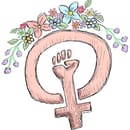The following is a take on the unsafe situation at the University of Utah through the eyes of only a few non-white/Caucasian students on campus.
Through the month of October, I have heard a lot of discussions about campus safety. Along with these discussions came some strong student opinions and outcries for real change instead of mere hypocritical apologies and vigils for a death that could have been prevented. Many students have come out and criticized what the University of Utah has done in response to the horrible and preventable tragedy that was Lauren McCluskey’s death. They are pleading with the University of Utah to do something, not just claim how sorry they are and then turn their backs on us.
Hello everyone! Welcome back to my ongoing discussion of diversity, stereotypes, biases, and inclusion (as well as the lack of inclusion). This week I want to talk about the unsafe situation on campus through the eyes, minds, and most importantly, the opinions of only a few of the many students of color who are a part of the University of Utah.
Last week I interviewed four of my peers about campus safety and the campus police, and here is what they said.
When all four interviewees were asked, “Do you feel safe around campus police?”, all four of my peers said, “No.”
The female African American student I interviewed said, “No, because what I see on social media and TV is violence from police officers against non-white people; the police was created to protect the white man so when it comes to me I don’t feel safe. When I see them around campus they seem distant. They don’t make me feel safe.”
While Carlos, a Hispanic male second-year student at the University of Utah, said that instead of making him feel safe, they put him on edge and make him nervous. He feels like he has to be careful with his attitude and his actions around any kind of police.
I then asked, “If you were in a physical, emotional, or psychologically abusive relationship, how likely would it be for you to go to the campus police and would you feel safe asking them for help?”
All four of my peers said they would not go to campus police, and if they were to go to the police, it would be their last option.
And when I asked if they felt safe asking for help, they all said, “No.”
Ray, a Muslim second-year student, said, “After what happened to Lauren McCluskey and seeing how the police responded after she kept asking for help, I don’t feel comfortable asking for help myself nor do I think that they would believe me.” Ray went on to say, “Lauren was a white/Caucasian student-athlete and they did nothing; how can I, a black, Muslim student of color think that they are going to make me feel safe or believe me… I can not count on them.”
The first-year female African American student said, “The police officer seems very distant and not reactive or productive. They aren’t here to protect me, much less make me feel safe, and the chances of believing me are very slim.”
And when I asked a second-year refugee student from Thailand the same question, she was not hesitant to point out that when all she sees is violence coming from the police against people of color and then she hears about officers not doing anything to help Lauren McCluskey, she does not understand how the University of Utah can say that these officers are here to help. “It does not make sense nor do I feel safe!”
I went on to the next question and asked what their opinions were on all the workshops that are happening on campus that are focused on self-defense and safe relationships.
Ray, the Muslim student, said that in her opinion, the University of Utah is partly doing the workshops to make themselves look good and seem like they are doing something. She said they aren’t bad to have, but then went on to add that when we look at the reality of this situation, people already have this preconceived idea that black and brown people are violent and aggressive. When people start to find out that they now know basic self-defense mechanisms and tools for their safety and protection, it does not look good for us nor does it help the situation when we are trying to change this stereotype. Ray then stated, “Yeah, I know that it’s not what we want to hear, but it’s the truth and it’s a sad one.”
When this question was posed to Carlos, he had a similar response. He said that the workshops are helpful and useful tactics coming from the University of Utah, but we shouldn’t have to need them.
All four students said that even though the workshops are a good effort to try and help the situation, we should not need to learn how to protect ourselves when we pay thousands of dollars per semester to have a campus police department protect and take care of us.
Lastly, when I asked them if they believed their voices were being heard or if they thought that their opinions were being taken into account, they all said that it didn’t feel like their voice mattered.
Carlos, in particular, mentioned that he felt like his voice often times gets lost when others are making decisions. As a man, he admits to having that privilege and he acknowledges that when it comes to issues and experiences with domestic violence and things like just walking in the dark after class, his situation is extremely different from what a female student experiences and feels. But considering that not a lot of male students speak up about this issue, he does not find it surprising.
Finally, through these interviews I learned that no, students of color (non-caucasian students) don’t feel safe on campus, much less around the campus police. While this is an issue that affects all of us, often times our peers’ voices get lost in the discussion.
Please ask for help, and report any issues that you may be having. Speak up and don’t let others silence you, because you are not alone.
Talk with your friends, family members, professors, work colleagues, or U of U campus staff. You can also go to the U of U Counseling Center and the Center for Student Wellness, and if you need to report a campus security/officer incident, here is the link to the form: https://dps.utah.edu/csa-report-form/



